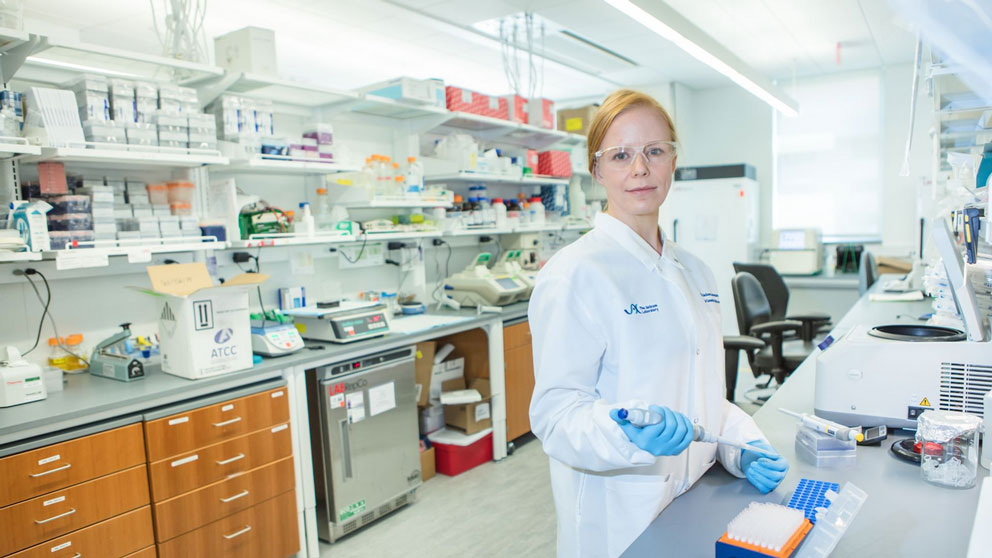Throughout human history, our genomes have been subject to mutation. They have reshuffled and duplicated parts of themselves, and some of this has happened through a process known as transposition.
About 50% of human DNA today is made of duplicated sequences that are the remnants of transposition events that took place in our evolutionary history. While transposable elements are a key feature in our DNA, we still do not have a complete understanding of the impact these elements have on our genome and our health.
Christine Beck, an assistant professor of genetics and genome sciences at UConn Health and researcher at The Jackson Laboratory for Genomic Medicine, will receive approximately $2 million from the National Institute of General Medical Sciences to reveal the impact of these repeated sequences.
One of the largest questions Beck will tackle about these sequences is how they impact genomic stability. She will work on determining the prevalence of genomic instability due to repetitive sequences and the mechanisms driving this instability in mammals.
“Successful completion of these investigations will greatly increase the existing knowledge of repeat-mediated rearrangements in mammalian genomes and expand our understanding of how repeats influence genome biology,” Beck says.
Beck hypothesizes that repeat sequences play a critical role in fostering genomic rearrangements that can lead to variation and disease.
Her team seeks to identify key mechanistic features of genomic rearrangements mediated by repeats. They will also examine genes that control recombination of repeats which, when perturbed, may lead to disease-causing mutations. Understanding these mechanisms will contribute to a greater knowledge of the pathogenesis of diseases like cancer.
Beck will also need to determine how these sequences affect the accuracy of current DNA sequencing technologies and methodologies at the Jackson Laboratory. Beck and her team will investigate the ability of various existing methods and algorithms to identify these events mediated by transposons, also known as “jumping genes.”
By determining any shortcomings in these processes, Beck will help identify avenues for future development to improve the accuracy of these tools.
To create a more comprehensive view of the impact of transposable elements on the genes in which they reside, Beck and her team will examine their role in genome folding and alternative splicing. These processes are key to cellular functioning as the first compacts about two meters of helical DNA into a ball within a microscopic nucleus. Alternative splicing allows a single gene to code for multiple proteins depending on where it is cut when it is copied and translated into a protein.
Christine Beck received her Ph.D. at the University of Michigan in human genetics. She completed her postdoctoral training at the Baylor College of Medicine in the Department of Molecular and Human Genetics. Her lab’s research focuses on how human DNA maintains fidelity in the context of a repetitive genome using computational, molecular biological, and genomic techniques.
NIH Grant #: 1 R35 GM133600-01



